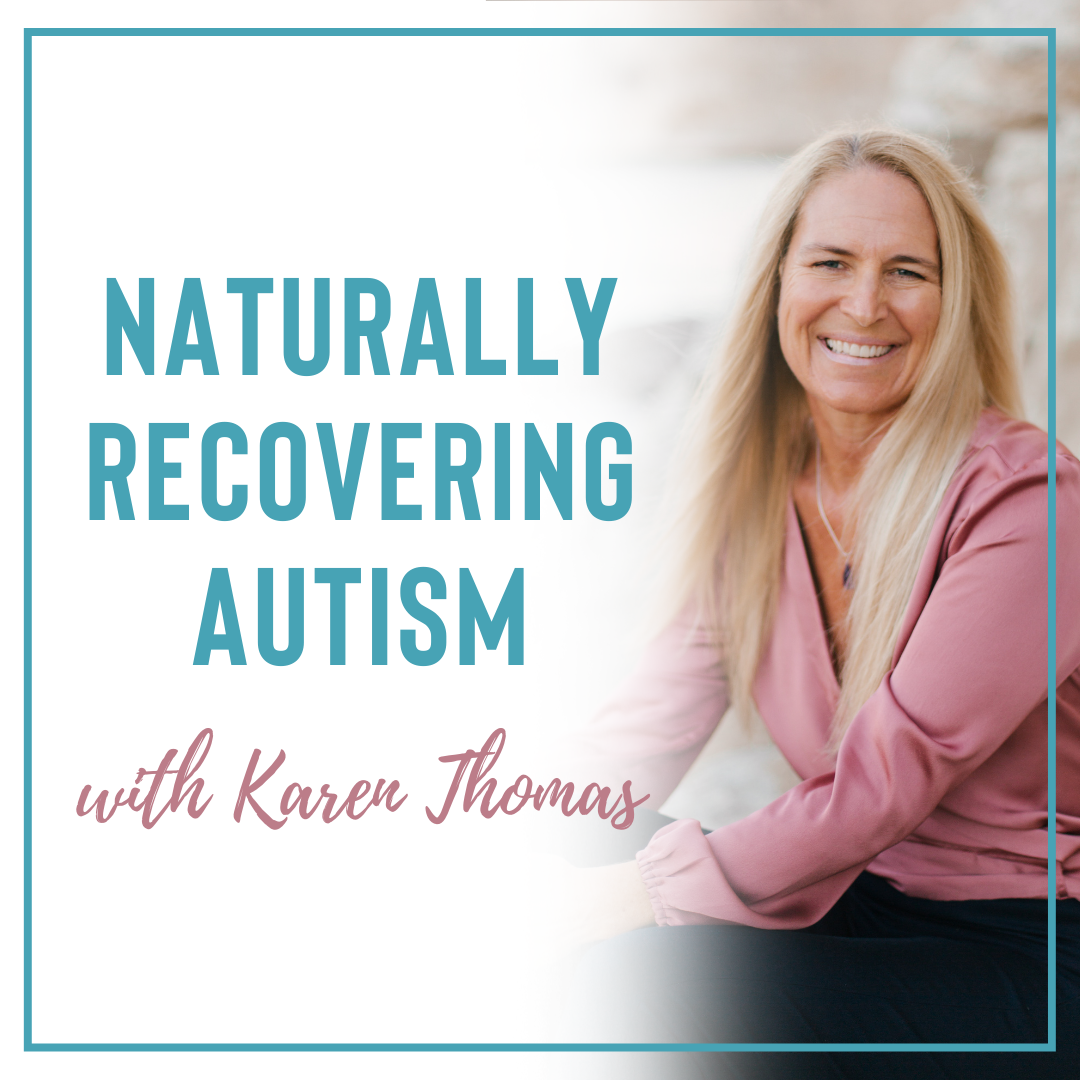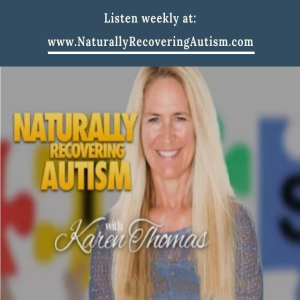

176.5K
Downloads
241
Episodes
Inspiring parents with natural solutions to create the most fulfilling, healthy and productive life possible for their children with autism. Empowering Parents with the Resources to Naturally Recover Autism from a mom who has done it. Having once been told her son could not recover from his symptoms of autism Karen Thomas now shares what she has learned through over a decade of personal research and experience that has brought her own son to recovery. Her background as a Craniosacral Therapist allowed her the awareness that the brain could heal if given the right support. Learn how you can allow your child a clear path for a happier and more fulfilling life with improved communication, better sleep, improved social abilities, and overall improved health. Get your FREE GUIDE to the top 7 foods to eliminate from your child's diet for better sleep, calmer moods, improved focus and speech at, NaturallyRecoveringAutism.com /7foods For more resources go to, NaturallyRecoveringAutism.com
Episodes

Thursday Mar 05, 2020
Mitochondrial Dysfunction and Autism With Dr. Richard G. Boles
Thursday Mar 05, 2020
Thursday Mar 05, 2020
Mitochondria give cells over 90% of their energy. Without proper energy cells cannot carry out their functions.
Mitochondrial Dysfunction vs Mitochondrial Disease
Mitochondrial dysfunction simply means that the mitochondria are not working correctly. Mitochondrial disease is the term used when the primary cause of mitochondrial dysfunction resides in the mitochondria. Mitochondrial disease is generally genetic. It can be inherited from either or both parents. A special type of mitochondrial disease is caused by mutations on the mitochondrial DNA, and is inherited only from the mother. When the primary cause of mitochondrial dysfunction resides outside the mitochondria, mitochondrial dysfunction is called “secondary” (to something else).
Symptoms of Mitochondrial Dysfunction
Cellular energy is necessary for the function of all cells, but is particularly critical for nerve and muscle. Both nerve and muscle are important in GI function, thus cyclic vomiting, constipation, diarrhea, poor GI mobility, and other digestive disorders are common. Additional potential complications of mitochondrial dysfunction include chronic fatigue, neuropathic pain, depression, autistic regression, seizures, hypoglycemia, visual and hearing difficulty, depression, anxiety, panic disorder, intellectual disability, and dysautonomia.
Mitochondrial Triggers
Mitochondrial dysfunction can be genetic, but even then, disease is often triggered by the environment. Viral infections are among the most common triggers of mitochondrial dysfunction. Additional potential triggers are other infections (e.g. lyme bacteria), vaccinations, toxins, anesthesia, and any other significant stressor. In order situations, mitochondrial dysfunction can be acquired. In fact, stroke and heart attack involve mitochondrial dysfunction, whereas cells are receiving insufficient oxygen for required energy metabolism. Many environmental toxins can poison mitochondria as well, including some pesticides.
Treating Mitochondrial Dysfunction
The good news is that mitochondrial dysfunction in general can be treated. In Dr. Boles’ experience, about 80% of people with mitochondrial dysfunction improve on proper treatment, including people with autism. Of course, this requires a broad-based treatment approach with strong foundational aspects including good diet, supplements, exercise, adequate sleep, avoidance of environmental triggers, and more. Of particular importance is the combination and dosages of specific supplements including the bioavailable form of coenzyme Q10 (ubiquinol), L-carnitine, riboflavin (vitamin B2), vitamin C, alpha lipoic acid, vitamin D, and others.
Interview
In my radio show interview with mitochondrial expert, Dr. Richard Boles, we discuss all of these topics in detail and he shares his supplement formula created to address the specific needs of mitochondrial dysfunction. Please listen. It’s show #51.
Click Here for more details.
No comments yet. Be the first to say something!